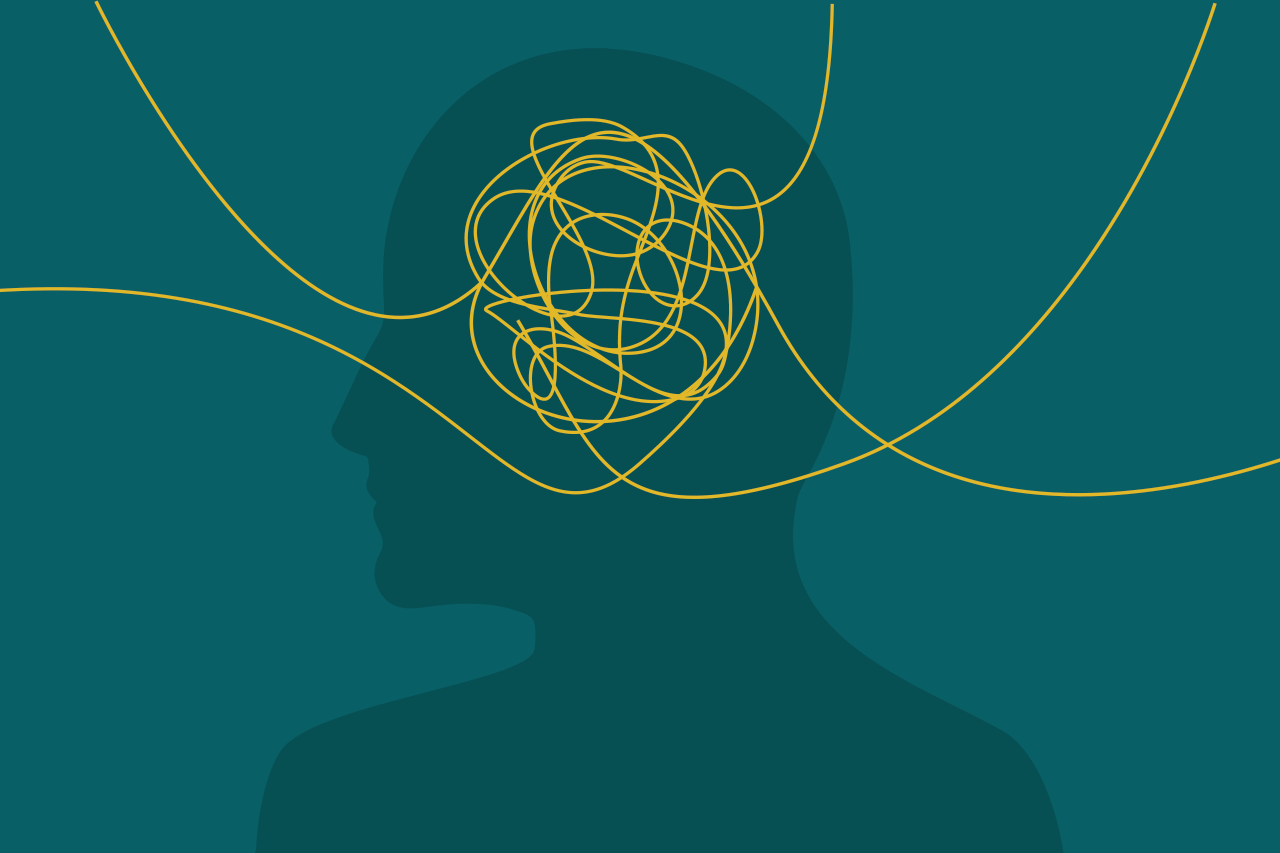
Body + Mind is reader-supported. We may earn an affiliate commission when you buy through some of the links on our site.
Life isn’t perfect for anyone, so it’s normal to handle occasional worries or stress. Your anxiety could be a problem if it’s something you feel every day. It’s a mental health diagnosis that can interfere with your life and change how you think about yourself. The good news is that it’s not a permanent state of mind.
Learn how to deal with chronic anxiety by using these eight tips. As you practice these habits, you’ll lessen your stress and regain the positive, hopeful spirit you need to achieve happiness.
Anxiety can present differently in people, depending on their worries. Stressing over your classes this semester could cause you to react differently than if you were anxious about a national election.
For the next few days or even weeks, take notes on how you feel when you’re anxious. You might come up with a list that includes symptoms such as:
Reflect on your thoughts and feelings after giving yourself time to record your symptoms. Seeing them on the paper or screen in front of you will make it easier to spot them the next time they appear.
It’s one thing to know how your anxiety translates through your emotions or actions, but it’s another thing to recognize them in the moment. Your anxiety could be overwhelming, making you forget your intentions to spot it when it starts to flare up.
Set alarms or reminders throughout the day, so you remember to check in on your mental health. With time, these reminders will become an automatic habit, so it’s easier to take control of your anxiety.
Once you understand your symptoms and when they appear, you can use the timing to locate your triggers. People often experience the same triggers from sources like:
Even though you might not be able to remove triggers like existing debt or family problems, locating them gives you power. You’ll know when your anxiety will spike and prepare to handle it instead of getting caught by surprise.
Anxiety makes your heart rate spike, resulting in rapid breathing. Hyperventilating — even for a short time — reduces cerebral blood flow and limits your oxygen intake. Both of these things intensify symptoms like feeling panicked or lightheaded.
As you learn how to deal with chronic anxiety, practice breathing differently when you get nervous or fearful. Slow, deep breaths are helpful, but so is meditation. Guided meditation interrupts the physiological processes that create anxiety symptoms. Listen to useful videos and save your favorite sessions, so you can always return to them when your anxiety gets overwhelming.
Some people are surprised to learn that their diet has a direct effect on their anxiety. Not drinking enough water or getting the nutrients your body needs will cause it to struggle.
You can always change your everyday diet to boost your mood and bodily functions. Focus on things such as:
Improving your diet will help you feel better and keep you from feeling sick as your anxiety ebbs and flows.
Sometimes the most challenging anxiety symptoms are the negative thoughts that come and go. They’re only present for a moment, but they immediately impact your mood.
With thoughtful intention, you can catch those negative thoughts. Picture yourself at the grocery store. You want to splurge on a brand-name treat, but your budget doesn’t have room. A thought flashes through your mind — you’ll never have the money for casual purchases. By the time you’ve left the store, your anxiety has spiraled into fearing a lifetime of debt and missing out on things.
Once you feel your anxiety symptoms begin, pause to breathe. Review your last few thoughts. If any of them have been negative, fight them with positive thoughts. Your financial problems will pass with time and patience. You can do this.
Repeating positive thoughts during anxious moments will help you end bad habits like drinking to hide anxiety in social settings or simmering anger at yourself and the world.
Your worries likely stem from a lack of control. No one can completely control their lives, but that powerlessness affects some people more than others.
Joining a volunteer group is a great way to regain a sense of control while giving back to your community. You’ll help people and feel fulfilled, no matter what you do.
The extra movement can also reduce your anxiety symptoms because it’s exercise. As you complete your volunteer assignments, your body produces the endorphins you need to get rid of your anxious feelings.
Whenever possible, it’s always good to step away from the situation causing your anxiety. Leave an argument or take a quick break at work. Once you’re somewhere quiet, you can breathe and remind yourself that your stressors aren’t permanent. You’ll return to whatever you’re facing with a clear mind that can solve the problem at hand.
While you figure out how to deal with chronic anxiety, these eight tips can make your journey easier. As you try each step, remember to extend kindness and compassion to yourself. You’ll face pitfalls and triumphs, but it’s all part of living life with anxiety.
Your email address will only be used to send you our newsletter, and at any time you may unsubscribe. For more information, see our Privacy Policy.